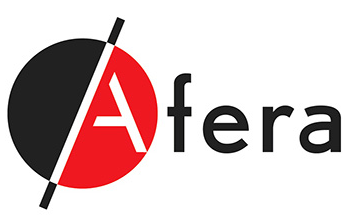
Sharing and controlling data exchange along the value chain
Founder and leader of Chemycal Lorenzo Zullo talks about using an open-source global blockchain platform for safe supply chain communication and product traceability.
 In a recent 90-minute session, Afera’s currently running digital 63rd Annual Conference addressed “Measurement methods and data”. The second presentation of Afera’s second session of our digital Annual Conference complemented the first in answering the question, how do tape-related companies make measurement of sustainability both meaningful and manageable?
In a recent 90-minute session, Afera’s currently running digital 63rd Annual Conference addressed “Measurement methods and data”. The second presentation of Afera’s second session of our digital Annual Conference complemented the first in answering the question, how do tape-related companies make measurement of sustainability both meaningful and manageable?
Measuring sustainability using an emerging technology
Lorenzo Zullo, who is not only the co-founder and CEO of Chemycal but the leader of ChemChain, a blockchain platform to store, exchange, build and track chemical-related information along the supply chain, described how the new initiative came as a response to the significant market demand for enhanced flow of data and transparency throughout the lifecycle of products to comply with existing legislative requirements. This will eliminate delays, mistakes and costs, simplifying legal procedures. In Europe alone, the estimated average annual total cost of direct compliance with legislation relevant to chemical companies is almost €9.5 billion. ChemChain will also enable customers to understand better the risks connected to specific chemicals and to avoid health and environmental threats.
Members polled on sharing information within the supply chain
In a poll to launch the session, most registrants indicated that they were already experiencing the exchange of information about chemicals in their supply chains and that in the future they expect this situation to expand according to increasing demand.
When asked if they are currently exchanging information on particular chemicals with clients and suppliers, most registrants replied that they try to transfer simply required information together with the shipment of their products, either on labels and other packaging or safety data sheets (SDSs). It was noted that otherwise transferring pertinent information (usually due to regulatory requirements) via email can get tricky when supply chains are long and difficult to trace.
Lastly, to Mr. Zullo’s surprise, most registrants revealed that they knew little about blockchain technology—that it could be applied to supply chain communication and product traceability.
Capturing and sharing confidential data
Why is chemical information important?
Collection and communication of data on chemicals and materials throughout the supply chain is essential to address emerging sustainability challenges, including regulatory compliance and product life cycle analysis. This is in conflict, however, with companies’ growing need to protect sensitive and confidential information related to their knowhow.
Compliance processes such as Classification and Labelling (CLP/GHS) and Registration of substances in Europe are also costly for individual companies, and they are constantly growing and evolving. In ECHA’s (European Chemicals Agency) universe of registered chemicals for adhesives and sealants alone, much new information needs to be generated on over 1,000 substances still, a situation which will lead to much more regulatory scrutiny, pressure and uncertainty for the Industry over the next few years.
 Transferring data properly
Transferring data properly
The tape industry supply chain starts with suppliers of raw materials, chemical manufacturers and formulators, and ends with producers of components and products, consumers and waste operators. It is difficult to manage the sustainability of your product and to measure circularity, i.e. recyclability, if you do not know where your chemicals are sourced and used within long, complex supply chains, with difficult-to-track entities in different countries and even on different continents. Already in the production phase of mixtures and formulations, there is loss of pertinent information—not about chemical composition but safety data sets—so that users further down the line, including end consumers and recyclers, do not know the makeup of certain components or how to dismantle and handle them in the end-of-life phase.
There is a currently a huge amount of information which is flowing in a scattered way across supply chains, which would benefit from a more structured and secure approach to communication. At each stage of the supply chain for whatever product you are using, a company should be able to access robust and trustworthy information which may be put together at the early stages of the supply chain but that becomes available during the entire life cycle of that material or component.
Capturing and sharing confidential data through ChemChain
Mr. Zullo’s new platform creates an immutable source of information on a product’s chemical components, allowing companies to overcome current supply chain communication constraints. He explained how this could dramatically reduce delays, added costs and human error that plague the chemicals supply chain today.
 Blockchain allows for the flow of untampered and verifiable information organised in digital passports linked to physical products. Every time a raw material or product changes hands, the presence of specific chemicals and related information is documented, creating a permanent history of a product’s chemical components, from manufacture to sale and its following life cycle.
Blockchain allows for the flow of untampered and verifiable information organised in digital passports linked to physical products. Every time a raw material or product changes hands, the presence of specific chemicals and related information is documented, creating a permanent history of a product’s chemical components, from manufacture to sale and its following life cycle.
It involves decentralising and creating a trust layer blockchain infrastructure to safely store, exchange, build and track hazardous chemical-related information along the supply chain. Access to information is given to selected authorised parties. Using ChemChain’s own encryption mechanism, the actors in various stages can control, where legality and sustainability programmes dictate, who can and cannot see specific ingredients of their products, even after they have been released in the market—into the future. ChemChain provides the interface but is not even privy to this information, which is not guarded by a central party or trustee; each company within the chain holds its own key to its encrypted data.
Within seconds, actors can make pertinent information known throughout the supply chain without compromising their IP, something which has not been possible until now. One result? Upstream players can gain unprecedented insights on uses and discover new potential material recovery streams.
Pilot case with Dow Chemical on recycling end-of-life polyurethane products in collaboration with the value chain
ChemChain received funding from the E.U.’s Horizon 2020 SME Instrument Phase 1, and they ran a feasibility study and set up their 2 pilot cases, which include a circular economy programme on recycling polyurethane foam used for producing mattresses with Dow Chemical. In this case, data on the mixtures which make polyurethane foam is needed 5-10 years later in the end-of–life phase for dismantling the mattresses.
 “It is the first time that this type of technology is being used in the manner we have created,” said Mr. Zullo. “It is important to note that we are not a third-party trustee but simply provide an interface to the companies that provide their data to this information network.” At the moment, the market for the safe transfer information along the supply chain is so large that ChemChain is even co-operating with other similar players on a platform called MineSpiders to track “conflict minerals”.
“It is the first time that this type of technology is being used in the manner we have created,” said Mr. Zullo. “It is important to note that we are not a third-party trustee but simply provide an interface to the companies that provide their data to this information network.” At the moment, the market for the safe transfer information along the supply chain is so large that ChemChain is even co-operating with other similar players on a platform called MineSpiders to track “conflict minerals”.
ChemChain has also been invited to support the E.U. funded project Gov4Nano, dealing with the risks associated with nanomaterials, and the Circular Database Initiative run by the Ministry of the Economy of Luxembourg, focusing on standardised information transferred along the supply chain.
Download the 29 October Session recording which includes L. Zullo’s presentation (Members only)
Go to overview of articles on Digital Conference topics
Learn more about Afera membership

